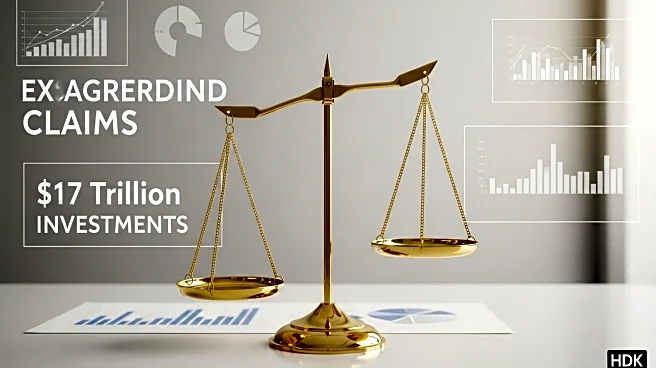What is the story about?
What's Happening?
President Trump has announced that his administration has secured $17 trillion in new investments, attributing this to his tariffs, tax cuts, and direct negotiations with international leaders and companies. However, the actual figure appears to be significantly lower, with the White House listing total investments at $8.8 trillion, some of which were commitments made during the Biden administration. The administration credits tariffs on various goods as a key factor in encouraging companies to invest in the U.S., although the precise terms of these investments remain unclear.
Why It's Important?
The announcement of $17 trillion in investments is significant as it reflects the administration's strategy to use tariffs as leverage to boost domestic economic growth. However, the discrepancy between the claimed and actual figures raises questions about the effectiveness and transparency of this approach. If the investments do not materialize as promised, it could impact public confidence in the administration's economic policies and affect the U.S. job market and income levels. The reliance on tariffs also poses risks, potentially straining international relations and affecting future foreign investments.
What's Next?
The administration is expected to continue using tariffs as a tool to secure investment commitments, with ongoing negotiations with international partners. The actual impact of these investments on the U.S. economy will depend on the successful implementation and realization of the promised funds. Stakeholders, including businesses and foreign governments, may react to the administration's tactics, potentially leading to adjustments in investment strategies or diplomatic relations.
Beyond the Headlines
The use of tariffs as a coercive tool to secure investments raises ethical and strategic concerns. It may lead to long-term consequences for U.S. foreign policy, as countries may view these tactics as aggressive and counterproductive. Additionally, the focus on securing large investment figures could overshadow the need for sustainable and mutually beneficial economic partnerships.















